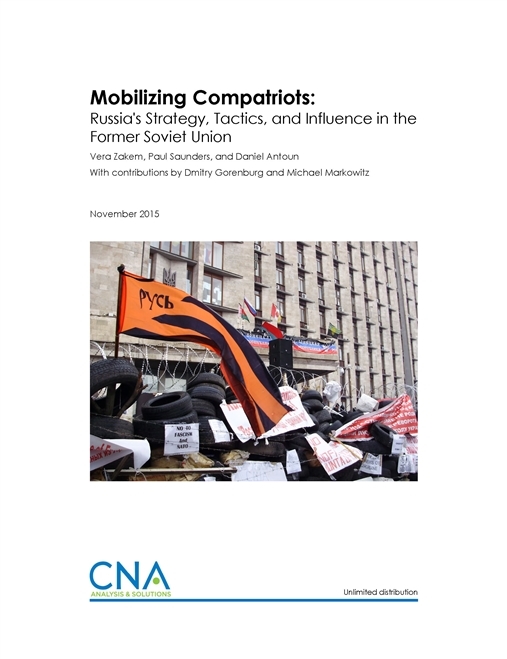Understanding the Russian government’s attitudes and policies toward ethnic Russians, Russian speakers, and others with ties to the Russian Federation in other former Soviet countries has become critically important in the wake of Moscow’s seizure of Crimea and support for eastern Ukrainian separatists—both of which Russia has justified as necessary to defend these populations. In this paper, we have sought to provide a preliminary assessment of Moscow’s perspectives, policies, strategic calculus, and operational instruments in dealing with these groups, which the Russian government describes as sootechestvenniki, or “compatriots.”
Russia’s government defines the term compatriots broadly to incorporate not only ethnic Russians and Russian speakers but also their families as well as others who may have cultural or other connections to the Russian Federation—including its non- Russian ethnic groups—directly or through relatives. Compatriots may have descended from former subjects of the tsarist empire or Soviet-era migrants (including those encouraged to resettle as a part of the USSR’s Russification policies) or may have migrated more recently. The countries with the largest shares of ethnic Russians in their populations are Estonia, Kazakhstan, and Latvia (23-27%) and Ukraine (17%).
Download reportUnlimited distribution. Specific authority: N00014-11-D-0323.
Details
- Pages: 74
- Document Number: DOP-2015-U-011689-1Rev
- Publication Date: 11/1/2015
